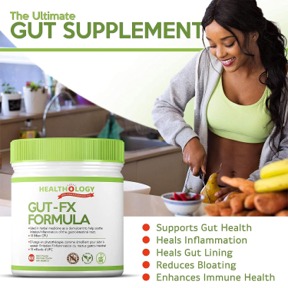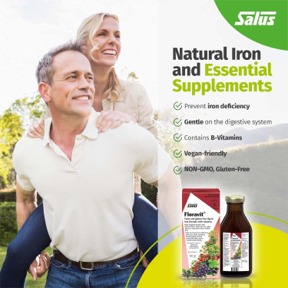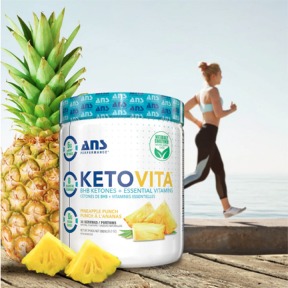
The Best Strategies for Managing Constipation
Share

Are You Constipated?
Constipation occurs when you find it difficult to pass stool or can't do so at all. You might experience fewer than three bowel movements a week, have stools that are lumpy or hard, strain during bowel movements, feel a blockage in your rectum, or experience pressure. Constipation is not only uncomfortable; if left untreated, it can lead to complications such as lower back pain, vomiting, fever, nausea, bloating, or even blood in your stool.
Chronic constipation can result in additional health problems, including hemorrhoids, anal fissures, and bowel obstructions. Healthy bowel movements are essential for the body to eliminate toxins and waste. If bowel movements are infrequent, difficult to pass, or incomplete, the body may not detoxify properly. This can result in fatigue, hormonal imbalances, acne, pain, bloating, inflammation, and other issues.
Why Does Constipation Occur?
Constipation occurs when the wave-like contractions and relaxations of the muscles, known as peristalsis, are diminished. This reduced peristaltic function can lead to a buildup of stool in the bowel. When stool remains in the colon for too long, it absorbs excess water, resulting in dry, hard stool that is difficult to pass.
One common cause of decreased peristalsis is low fluid intake or dehydration. Even if you don't feel thirsty, not consuming enough water (about 1 to 2 liters per day) can reduce the moisture in your colon, disrupting the normal passage of stool.
Additionally, a lack of the right types of fiber can contribute to constipation. Fiber is essential for adding bulk to stool and helping it move smoothly through the intestines.
Certain medications, particularly those that affect the central nervous system, can interfere with the body's natural signals for bowel evacuation. This includes narcotics, antidepressants, and codeine.
Conditions such as hemorrhoids, which can develop from constipation or during pregnancy, may also obstruct the rectal opening, making it more challenging to pass stool.
Various diseases, including cancer, inflammatory bowel disease, irritable bowel syndrome (IBS), diabetes, hypothyroidism, and Parkinson's disease, can further contribute to constipation.
Finally, insufficient physical activity can lead to a sluggish colon, while the overuse of laxatives, suppositories, or enemas can weaken the muscles involved in peristalsis, creating a dependency on these aids for digestion.

Managing Constipation with Healthology
To improve digestive health, it's essential to identify and address the underlying causes of constipation. Even if you're doing everything right, sometimes you may need additional support to achieve healthy and fully functional daily bowel movements. Seeking a natural solution for constipation is a great approach, and Healthology is a reliable resource for all your gut health needs.
Start by increasing your fluid intake—focus on drinking more water and herbal teas to hydrate your colon and promote regular bowel movements. Additionally, increase your fiber intake with types that support colon health without causing strain.

Healthology Daily Fibre Blend- Fibre is an essential component of a healthy diet, as it helps keep our digestion on track. According to Canadian guidelines, women require 25g of fibre per day, while men need 38g, with 25% of this coming from soluble fibre. Unfortunately, the typical North American diet provides less than half of the recommended fibre intake. Even when people understand the benefits and sources of dietary fibre, it can still be challenging to achieve the recommended amounts, and taking a fibre supplement might not always be viewed positively.
It's important to note that not all fibre supplements contain psyllium-based fibres, which can dehydrate the colon and exacerbate constipation for some individuals.
Healthology Daily Fibre Blend offers a convenient way to boost your fibre intake, easily incorporated into meals and snacks. Each serving contains 4g of fibre and is non-GMO, Certified Organic, and free from additives. This blend features insoluble fibre, the "roughage" primarily found in the skins and seeds of plants.
The unique combination of organic flaxseed powder, organic chia seed powder, and organic quinoa seed powder in Healthology Daily Fibre Blend works together to promote bowel regularity by adding bulk to the stool, which helps waste move through the digestive tract. Additionally, insoluble fibre attracts water into the stool, making it softer and easier to pass, reducing strain on your bowels. It also plays a crucial role in keeping you feeling full after meals, as it occupies space in the digestive system. This helps curb cravings and promotes a sense of satiety, assisting in maintaining a healthy weight.

Healthology Gut FX Formula- Gut health is essential for our overall well-being. The gut lining selectively absorbs nutrients from the contents in the digestive tract, while the remaining material is excreted from the body. Additionally, the gut serves as a central hub for our immune system. It produces many hormones, such as serotonin and dopamine, which influence our mood, sleep, appetite, and nervous system. When the gut lining becomes inflamed, it cannot perform its functions effectively, leading to various symptoms throughout the body.
Healthology GUT-FX is the ultimate formula designed to heal inflammation and restore your gut health. It provides the necessary building blocks for your body to repair the intestinal lining. This formula includes herbs that help reduce inflammation and soothe digestion, as well as probiotics to support healthy gut flora.
Healthology GUT-FX takes a comprehensive approach to gut health, enhancing our ability to absorb nutrients, eliminate toxins, balance the immune system, and support neurological hormones.

Healthology Go Lax Bowel Formula- While it's important to identify and address the underlying causes of constipation, there are times when additional support is necessary to maintain regular bowel movements. Healthology GO-LAX provides gentle and effective relief from occasional constipation by stimulating the colon's natural peristaltic action and drawing water into the bowel to soften stool, making it easier to pass.
GO-LAX activates pelvic nerves and motility receptors in the colon, enhancing peristalsis and promoting overall bowel motility. Additionally, it soothes and heals the digestive tract, alleviating symptoms of irritable bowel syndrome (IBS), such as reduced pain, less straining, and improved stool consistency and frequency.
Unlike other laxatives that contain harsh purgative herbs like senna and cascara sagrada—which can cause cramping, pain, and dependence—GO-LAX can be taken every few days when experiencing sluggishness or once or twice a week for regular colon maintenance.

Salus Manna-Fig Syrup is a natural food source and gentle laxative that stimulates bowel movements without being harsh on the digestive system. The ingredients, particularly the figs, help soften the stool, making it easier to pass and reducing discomfort associated with constipation. By softening the stool and gently stimulating digestion, Manna-Fig Syrup promotes regular and healthy bowel movements.
Additionally, Manna-Fig Syrup is rich in essential nutrients, including calcium and magnesium, as well as antioxidants like vitamin A and anthocyanins, which help heal and protect tissues from damage caused by constipation.
Made from organic, fresh figs and manna ash, Salus Manna-Fig Syrup is pressed and sealed within 2-3 hours of harvesting. It contains no preservatives or alcohol and is both vegan-friendly and gluten-free.
 Tips to Improve Elimination
Tips to Improve Elimination
Healthy digestion is the foundation of a healthy body, and a well-functioning colon plays a crucial role in your overall digestive health. If you’re not having at least one easy-to-pass, fully evacuated bowel movement daily, it may be time to reevaluate your bowel habits.
Stay Hydrated: Aim for 2-3 liters of fluid per day. These can include water, bone broth, soups, tea, and water-rich fruits and vegetables.
Exercise Regularly: Regular physical activity can stimulate your intestines, promoting normal bowel movements.
Incorporate Fermented Foods or Probiotics: Healthy gut flora is essential for overall health and regular bowel movements. Chronic constipation is often linked to intestinal dysbiosis, which is an imbalance of good and bad bacteria in the gut.
Include Prebiotic Fibers in Your Diet: Prebiotics serve as food for the beneficial bacteria found in fermented foods or probiotics. Good sources of prebiotics include sweet potatoes, onions, asparagus, mangoes, avocados, apricots, turnips, and strawberries.
Choose the Right Type of Fiber: Soluble fiber can increase stool bulk, which promotes intestinal contractions and helps speed up the passage of stool through your digestive tract.
Consume Healthy Fats: Foods rich in Omega-3 fatty acids, such as fish, avocados, nuts, nut butter, olive oil, and coconut oil, can support digestion. You can also consider Omega-3 supplements.
Review Your Medications: Some medications can cause constipation. Talk to your pharmacist to determine if any of your current medications might be contributing to the problem and discuss possible alternatives.
Consider Food Sensitivities: If you suspect food sensitivities, consider trying an elimination diet, as they could lead to constipation or diarrhea in some individuals.
By implementing these strategies, you can support your digestive health and improve your elimination.






